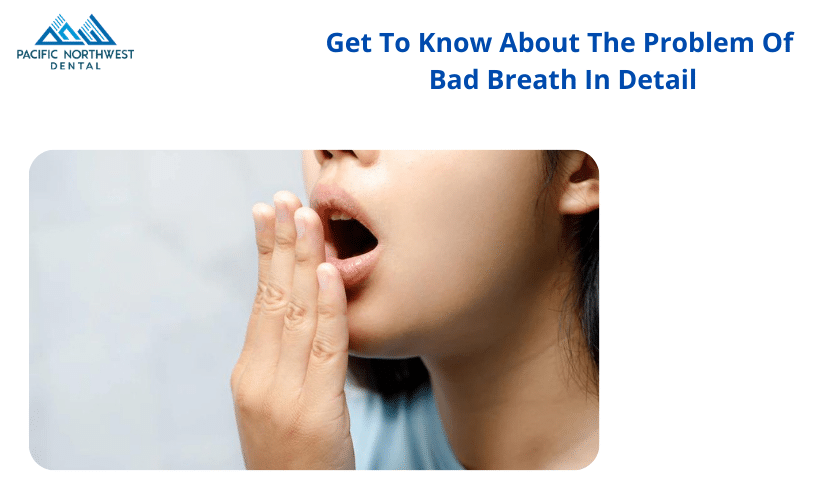
Consistent poor breath is characterized by a foul odor coming from the teeth and mouth, which can be the source of your nightmare. According to the American Dental Association, about half of all individuals suffer from halitosis or bad breath. Ignoring this issue for an extended period can increase your chances of developing major oral health problems in the future. A lot of causes might contribute to bad breath. In this article, we’ll cover practically every aspect of bad breath. So, if you have any questions, reading the sections below can be pretty helpful.
What Are The Common Signs Of Bad Breath?
You will have a terrible taste in your mouth in addition to continuous bad breath. It occurs as a result of the underlying ailment, not because of the food items consumed. You should be aware that brushing, flossing, or using an antimicrobial mouthwash may not always be sufficient to resolve such an issue.
What Are The Causes Of Halitosis?
As previously stated, a variety of causes might contribute to poor breath. The following are some of the most prevalent reasons for bad breath, according to the top Beaverton dentist:
- Failing to follow a proper oral hygiene routine
- Smoking on a regular basis
- Suffering from the problem of having a dry mouth
- Having periodontal problems
- Having problems with your throat, mouth, or sinuses
- Other illnesses such as kidney failure, liver problems, sleep apnea, diabetes
How To Avoid Halitosis Or Bad Breath?
Any dental condition, including foul breath, can be avoided by adopting preventive actions daily. Some suggestions for preventing halitosis or bad breath:
- Brushing your teeth at least twice a day is recommended. Use a toothbrush with gentler bristles if possible. Brush your tongue and inner mouth walls as well for a better result.
- Brushing and flossing your teeth are both essential. Floss is helpful for cleaning areas that a toothbrush cannot reach. As a result, floss after brushing.
- Mouthwash rinses can aid in the fight against the dangerous germs in your mouth that cause bad breath. Mouthwashes are available in various flavors and compositions. To discover which option is best for you, consult your dentist.
- If you want to avoid having bad breath, you should drink enough water. The explanation for this is simple. Dehydration occurs when you drink less water, which impacts the flow of saliva into your mouth. This can result in foul-smelling breath.
- Avoid food items that can be the reason for bad breath, such as onions and garlic. Bad breath is also linked to eating a lot of sugary foods.
- Replace your toothbrush every three to four months if it becomes frayed, and use a soft-bristled toothbrush.
- Clean your bridge or denture thoroughly at least once a day or as recommended by your dentist. If you wear a dental retainer or mouth guard, make sure it’s clean before putting it in your mouth. Your dentist can advise you on the best cleaning solution.
- Also, it is recommended to go for professional teeth cleaning sessions at a reliable dental office nearby. This helps prevent numerous oral problems, including bad breath or halitosis.
Even if you follow all of the above suggestions, you may still suffer from halitosis or bad breath. Do not hesitate to contact your dentist if you find yourself in this position. If you’re seeking the finest dental care in Beaverton, OR, contact Pacific Northwest Dental. Seeing our dentist in person might assist you in finding the best remedy for your foul breath. Give us a call right now!
